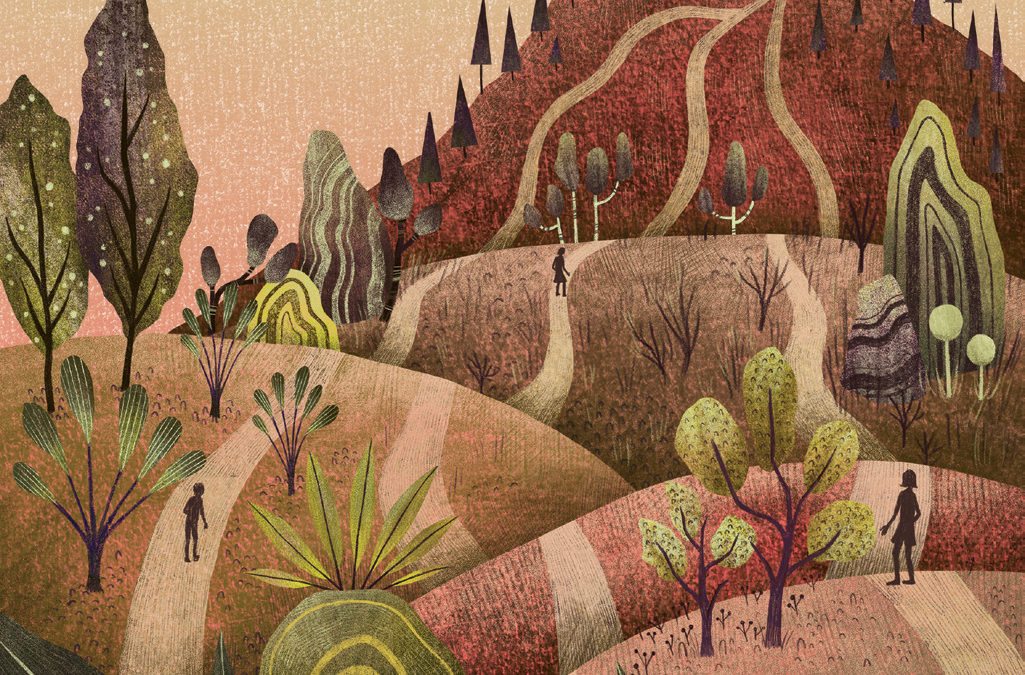by Elizabeth Hunter—
Our local store has an entire aisle just for soap and deodorant. We see this kind of thing as normal, but when my husband’s college friend, new to the U.S. from Zaire, needed to replace his dwindling bar of soap, the grocery aisle with dozens of brands from Aveeno to Zest left him stunned. “So many?” he asked. “How do you choose?”
We appreciate and benefit from variety. After all, God created variety and called it good. When we consider the great variety in God’s creation, “making way” for creatures—especially those on the brink of extinction—nurtures our spirits, argues Venice Williams (p.6), and moves us away from “the chaos of an increasingly plugged-in existence,” adds Mary Button (p.8). But some chaos is also derived from our response as humans to God’s beautiful variety in each other, particularly when we become so locked into a choice that we choose to no longer hear our neighbor.
Today, rather than look for common ground, we fragment ourselves into people of different radio and TV stations, apps, news sources, political parties or even celebrities to “follow” on social media. As a society, we have accepted division to the point where we condemn neighbors and say we can’t even talk to each other. Some of us skip family holiday celebrations, delete former social media “friends” and even cross the street to avoid conversation with those “not like us.” The rush to shut down communication signals a choice of comfort rather than challenge. The problem is that’s not what God calls us to do.
Here is where the church’s witness can be life-giving. Group Bible study, the Rev. Karen Bockelman writes (p.18), is “one of the great gifts of Lutheran women’s organizations.” We talk together about the multiple meanings of Scripture as “different people with different backgrounds, interests, challenges, opinions, experiences,” Bockelman writes. The world hungers for this. Bible study is our way of crossing new roads with neighbors who are not like us.
The church offers both comfort and challenge. We are reminded that “all hearts are open, all desires known and …no secrets are hid” from the One who can “cleanse the thoughts of our hearts by the inspiration of your Holy Spirit, that we may perfectly love you and worthily magnify your holy name” (Evangelical Lutheran Worship, p.95). We confess “that we are captive to sin and cannot free ourselves.” We admit that “we have not loved you [God] with our whole heart; we have not loved our neighbors as ourselves.” We ask for mercy, forgiveness and renewal. We know we will receive them.
When we become locked away from each other, into one choice or brand or interpretation or meaning, we tend to forget that God is all about variety. Like the Pharisees in session one (p.20) of our four-part Bible study series, we get stuck on the handwashing instead of the law of love that should be written on our hearts. We forget that we, too, have biases.
So this year, let’s strive to remember, as our Bible study author, the Rev. Mark Allan Powell writes (p. 30): “The word of God is both law and gospel—and sometimes it is both at once. …Bible stories often mean different things to different people.” That teaches us a lot about life.
Elizabeth Hunter is editor of Gather and a lifelong Lutheran. She and her husband, Leslie, enjoy sharing stories of life and faith with their two sons.
This article is from the January/February 2018 issue of Gather magazine. To read the full story or more like it, subscribe to Gather.


